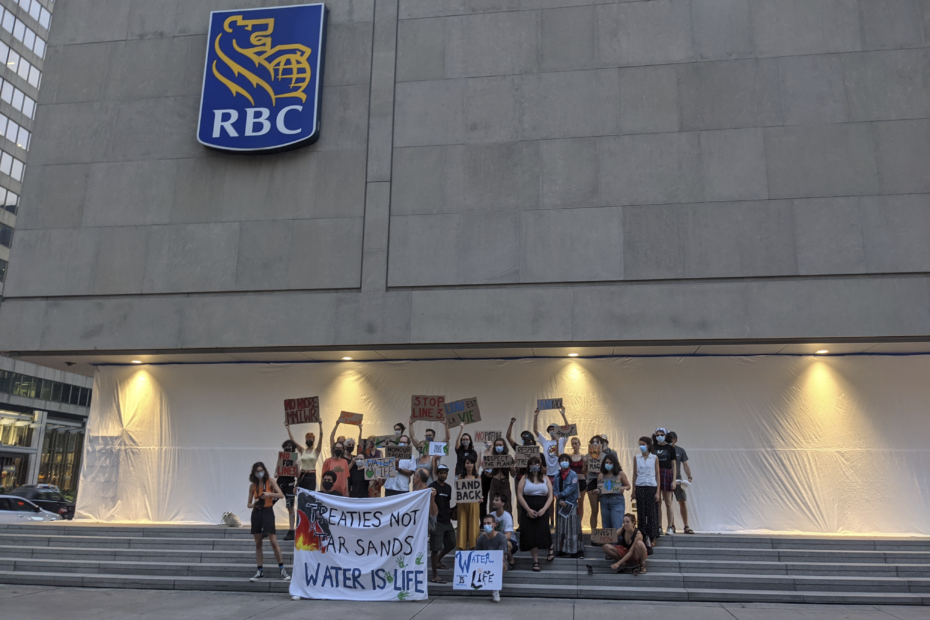Line 3 is cultural genocide at the hands of Enbridge, police and big banks

This article was written by Evelyn Austin of Bank on a Better Future and originally published in the National Observer. Here is an excerpt:
I recently returned home from Red Lake Treaty Camp at Thief River Falls in Minnesota, where I watched Enbridge complete its largest river crossing in the construction of the Line 3 pipeline. Despite being a Canadian-led project, Line 3 has received little media coverage on this side of the border.
The pipeline, soon to be operational, poses a serious threat to life on this continent. Enbridge calls it a replacement for the Line 3 pipeline that has been operational since the 1960s. However, the project now under construction will be twice as large as the original and take a different route, and Enbridge has no plans to remove the original pipeline from the ground, making “replacement” an empty word.
The project, once finished, will cross 200 bodies of water, including the headwaters of the Mississippi River, which runs into the Gulf of Mexico, and through two watersheds that run off into Lake Superior. The original Line 3 pipeline is responsible for the worst inland spill in U.S. history, and even before oil has begun to flow, the new pipeline has caused 28 drilling fluid spills into 12 river crossings. The pipeline violates treaty rights of Ojibwe nations of the area and cuts through treaty land without consent of tribal nations. Tara Houska, founder of Giniw Collective and a tribal attorney, calls the project “a perpetuation of cultural genocide.”
The replacement line construction has faced seven years of resistance from Ojibwe tribal nations in Minnesota, and since December, Indigenous and allied water protectors have carried out non-violent, on-the-ground resistance. As of this month, Minnesota police have arrested over 600 water protectors and issued 80 felony charges.
Perhaps unexpectedly, Canadian banks are implicated in this conflict. TD, RBC, Scotiabank, BMO and CIBC are Enbridge’s top five global financiers, and are all continuous lenders to the Line 3 project. This past winter, these banks issued a three-year, $1-billion “sustainability-linked” credit to Enbridge to continue its tarsands operations. The banks fund Enbridge, Enbridge funds police surveillance and the cycles of genocide and extraction in the name of return on investment continue.
__
Read the full article on the National Observer.
